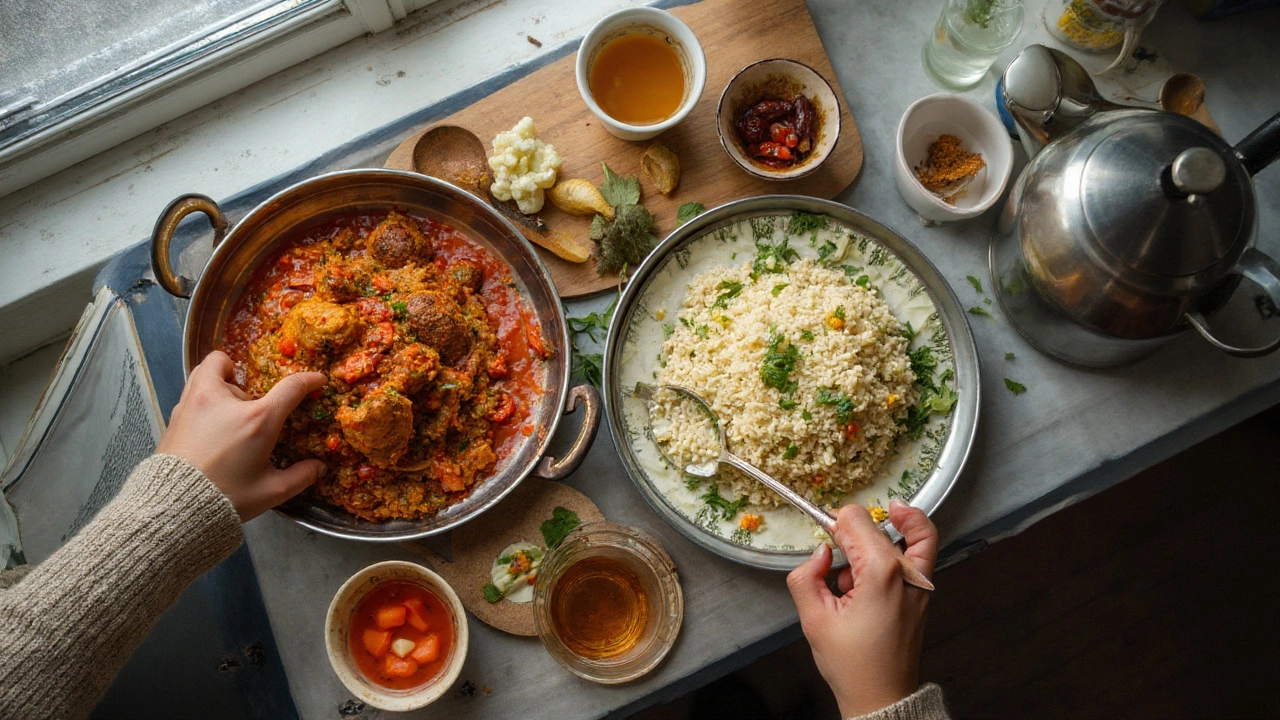A clear, practical guide to inflammatory foods in Ayurveda-what stokes heat, dryness, and heaviness, with dosha-specific lists, swaps, and UK-friendly examples.
Read MoreVata Diet: Simple Foods and Tips to Keep Vata Balanced
If you feel chilly, have dry skin, or get anxious easy, your Vata dosha is probably out of whack. The good news is that a Vata‑friendly diet can smooth things out fast. The idea is to choose warm, moist, and grounding foods that counter the light, dry, and cold nature of Vata. Below you’ll find the basics you can start using today, plus a couple of easy recipes that fit right into a busy Indian household.
What Vata Needs in a Meal
Vata loves anything that adds warmth and moisture. Think cooked grains like rice, quinoa, and oatmeal instead of raw salads. Use healthy oils – ghee, sesame, or coconut – liberally; they give the body the lubrication Vata craves. Sweet, sour, and salty flavors are your friends, while bitter, astringent, and pungent tastes can tip Vata farther off balance.
Here’s a quick checklist for every meal:
- Warm, cooked vegetables (carrots, sweet potatoes, squash)
- Whole grains or millets (basmati rice, pearl barley, jowar)
- Healthy fats (ghee, olive oil, almond butter)
- Spices that generate heat (cinnamon, ginger, cumin, cardamom)
- A small amount of natural sweetener (honey, jaggery) if you need extra grounding
Avoid raw cruciferous veggies, cold salads, popcorn, and caffeine when Vata is high. These can make you feel more restless and dry.
Easy Vata‑Friendly Recipes
Now that you know what to pick, let’s turn it into something tasty. Below are two recipes you can whip up in under 30 minutes.
Warm Kitchari – A classic Ayurvedic comfort food. Rinse ½ cup split yellow moong dal and ½ cup basmati rice. Saute a teaspoon of ghee with cumin, mustard seeds, ginger, and a pinch of turmeric. Add the rinsed grains, 3 cups water, and a handful of diced carrots and zucchini. Cook until soft, then stir in a splash of ghee and a squeeze of lemon. This dish is grounding, moist, and easy on digestion.
Spiced Sweet Potato Soup – Peel and cube two medium sweet potatoes. Saute chopped onion, garlic, and a tablespoon of ghee. Toss in the potatoes, 4 cups vegetable broth, ½ tsp cinnamon, ¼ tsp nutmeg, and a pinch of sea salt. Simmer until potatoes are tender, blend until smooth, and finish with a drizzle of almond oil. Serve warm, and you’ll feel the Vata‑calming effect instantly.
Both recipes follow the Vata rulebook: they’re warm, moist, and packed with grounding spices. Feel free to add a spoonful of ghee on top for extra nourishment.
In everyday life, aim for three main meals that are cooked, not raw. Snack on soaked almonds, warm milk with a pinch of cardamom, or fresh fruit like ripe bananas. Hydrate with warm water or herbal teas (ginger, cinnamon, licorice) rather than ice‑cold drinks.
Remember, the Vata diet isn’t a strict regime – it’s a set of simple habits that keep your energy steady, your digestion smooth, and your mind calm. Start with one change a week, notice how you feel, and adjust as needed. Your body will thank you with less anxiety, better sleep, and a steadier mood.





